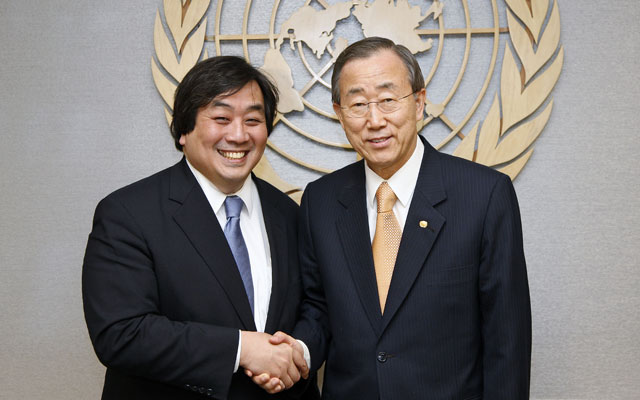The Arms Trade Treaty and the Second Amendment: The Dangers of Transnationalism
Ted Bromund / John G. Malcolm /
On February 26, the American Bar Association’s (ABA) Center for Human Rights issued a white paper on the U.N. Arms Trade Treaty (ATT), which concludes that “the proposed ATT is consistent with the Second Amendment.” This conclusion neglects important facts about the treaty and the processes surrounding it, which we are exploring in this four-part series.
In the first part of the series, we noted our concerns with the implications of the treaty for the import of firearms and as they relate to the federal structure of the U.S. In the second part, we looked at how the treaty’s requirements may invite further executive actions by the United States. In this third part, we look at how the theory of legal transnationalism raises broader concerns about the ATT.
The ABA paper neglects another fundamental point. Though the ATT is a treaty, it is fundamentally a process, not an event. It envisages a secretariat (Article 12(1)) charged with assisting “effective implementation” of the treaty and (Article 21) regular conferences of nations party to the treaty that will “consider and adopt recommendations regarding the implementation and operation of this Treaty.”
In short, the treaty will be elaborated and potentially expanded using the pretense of “effective implementation” for decades to come. For the U.S., it is not merely a question of what the treaty requires today; it is also a question of what this process would commit it to in the future.
This raises the concern of legal transnationalism. Transnationalists argue that internationally defined norms are binding on the U.S. as customary international law or should be used to remake U.S. policy or re-interpret the Constitution. In a recent speech, Harold Koh—then the State Department’s legal adviser, formerly the dean of Yale Law School, and a prominent transnationalist—summarized this approach:
Twenty-first century international lawmaking has become a swirling interactive process whereby norms get “uploaded” from one country into the international system, and then “downloaded” elsewhere into another country’s laws or even a private actor’s internal rules.
To adopt Koh’s terminology, the ATT is a process whereby norms relevant to the Second Amendment could be “downloaded” from another country or the U.N. system into the U.S. policy and legal systems. Koh himself has argued that “the only meaningful mechanism to regulate illicit [international] transfers is stronger domestic regulation” and that “[s]upply-side control measures within the United States” are essential.
Moreover, in 2010, Mexico, speaking for eight other Central and South American nations, stated its view that “internal transfers which…might have an impact on other States should also be part of an ATT.” Since any firearm transfer—meaning any change in the ownership of a firearm—might conceivably affect another nation, this argument, if adopted, would place all domestically owned firearms within the scope of the ATT.
While Mexico’s views are not currently reflected in the draft treaty, they demonstrate, along with Koh’s arguments, that both foreign nations and distinguished legal scholars agree that processes like the ATT should be used to pressure the U.S. to adopt new policies and to persuade U.S. legal authorities that their interpretation of the Second Amendment should be modified to comply with new, internationally defined norms.
Insofar as treaties and customary international law are interpreted in such a way as to govern the relationships among the federal government, state governments, and the American people, they can supplant the legislative powers of Congress and the states and can violate principles of federalism and our system of representative government.
Courts tasked with determining the original public meaning of constitutional text are not likely to be aided by references to modern treaties and ever-evolving concepts of customary international law. But this will not stop other countries and transnationalists in this country from trying to make inroads in our courts toward establishing international approaches to the interpretation of our law.

